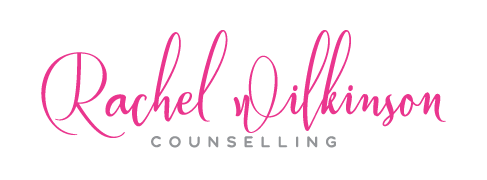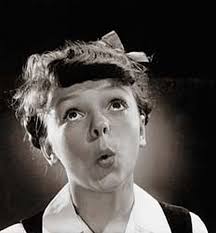Mind your own business
I’ve been called on my judgement a few times. Never as loudly as the time I was told to mind my own business, by a man washing his clothes at Kirra Point on a Tuesday morning.
I try really hard not to be judgmental, or if catch myself making a judgement call in my mind, I try to talk myself around it, or understand the person has permission to be as they are. So the man washing his clothes at the lookout may not have been homeless; he may have been on a surfing safari whilst renting his Honolulu apartment out on Air B&B.
My problem is, I don’t have what my drama friend calls a neutral face. I think I am more on the opposite end of the spectrum with my what the heck? face. I am not like Lady Ga Ga. I’m not even terribly good at UNO, let alone having a poker face. You can actually see me thinking, “Woo-hoo! I have a wild card pick up 4 and you are going down!” or in the supermarket “Why the hell would you wear a bra with a strapless dress?” You can see my face crumple, the brow wrinkle, the lip turn down and the head tilt. I think I even have a what the heck? wrinkle near my mouth. I usually get caught out when I do this, by walking into a pole, knocking over a display in the aisle, or a small child appears in front of me, forcing me to trip over my own feet. When I am in your business, I am not minding mine. I’m not watching where I am walking, or driving, for that matter.
My business, Your business, God’s business
So Byron Katie, has a theory about thoughts. She was depressed for many years and spent a lot of time thinking about thoughts and how we relate to these thoughts. She says in life, there are three types of business: your business, my business, and the Universe’s business, or God’s business; (these two are interchangeable, but basically represent the huge things we can’t control in life), like the stock market, or traffic lights, or the weather.
When the man at Kirra Point yelled at me, it was a very good reminder about staying in my own business. I suspect he also saw my what the heck? face. He was washing his T-shirts under a council tap and hanging them on the fence to dry. His business. So he saw me looking and yelled very loudly “Mind your own business, you need to focus on your own stuff, not what I am doing, this is not YOUR business.” True. Not mine at all. I was ashamed, averted my eyes and walked down the very steep hill in a bit of a dangerous hurry.
Byron Katie asks us to think about when we are in somebody else’s business, who is minding our business? I tend to preoccupy myself with what everyone else is doing as a way of escaping my own reality. I think this is how reality TV has found its audience. I can yell at the TV “You’re an idiot!” and “I can’t believe you would speak to someone like that!” when in fact, I speak to my family, loved ones and sometimes myself in a similar way. When I judge others, it is another way of taking the attention away from me, hiding my own shame and behaviour while gossiping about others. So who is watching my business, while I am sticking my neck out into someone else’s?
Acceptance
Byron Katie believes the reason we get stressed is because we are rallying against the things we can’t change, instead of accepting them. So when I get angry at the rain for drenching me in an unexpected shower, I should really be accepting it is raining, and realise I didn’t bring my umbrella. Or, if I was more evolved, I could be grateful for the rain, because it has been so hot and dry and be happy because the farmers need it and the dams need to be filled to ease the drought.
Byron Katie does exercises using a worksheet, where a person can investigate a thought or belief like “I hate my life,” or “I am fat,” or “Nobody likes me.” When you do what she calls, The Work, she asks you to say this belief out loud, question its validity, then give examples to support why it isn’t true. A simple question. “Is it true?” A simple look at how we think. So rather than get angry or stressed about something, accept it as it is and move on. Acceptance in itself can be a huge change for some people.
Old beliefs
Some of our thinking can also be old, outdated, or can actually belong to somebody else. My mother used to say “If you go out with wet hair you will catch a chill,” I used to go out every day with wet hair because I didn’t have the patience or energy to blow dry. What is a chill anyway? Why do we sometimes hang on to these outdated thoughts? Sometimes I have almost said this to my children, and caught myself with the thought, “Hang on a minute, isn’t a chill or a cold caused by a virus?” and “when is it ever cold where I live anyway?” So often our thoughts are not true, we just think they are, or we are just used to thinking them. Quite often, it’s a habit, or our thinking has just fallen into a negative pattern.
Yesterday when it was raining and I was driving behind a car swerving all over the road and I said to the person in the other car “What is wrong with you?” I was watching the car swerve all over the road in front, I think I may even have yelled “Are you drunk?” I was so caught up in criticising his behaviour, I didn’t see the pothole he was swerving to avoid and I hit it with a bone jarring doink.
I know it is hard to stay in our own business, but ultimately it can be less stressful to only worry about the small space we take up in the world, rather than what everyone else is doing. I believe judgement can sometimes have a place, my children know if something feels weird or creepy, it probably is, but that is more like a gut feel than a criticism of behaviour. I think too much, to have any room in my head for anyone else and their behaviour, the thoughts are there, but I often now tell them to go away, I don’t believe them, they are not true and I don’t have time for them. They can go and mind their own business.
To understand a little more about The Work and how Byron Katie does this, you can follow this link.
To look at one of the free worksheets for adults and children you can download here.
Rachel Wilkinson is a counsellor and massage therapist at Step into Health in Mansfield, Brisbane. She studied Holistic Counselling and The Work of Byron Katie with The Awakening Group. She works on judgement all the time. She has tried to stop saying ” No judgement, but” as it is always seems to precede a judgy sentence. She now realises when the young kids say “Just sayin”” it is also a way to excuse how judgmental you are. Just sayin.’


Leave a Reply
Want to join the discussion?Feel free to contribute!